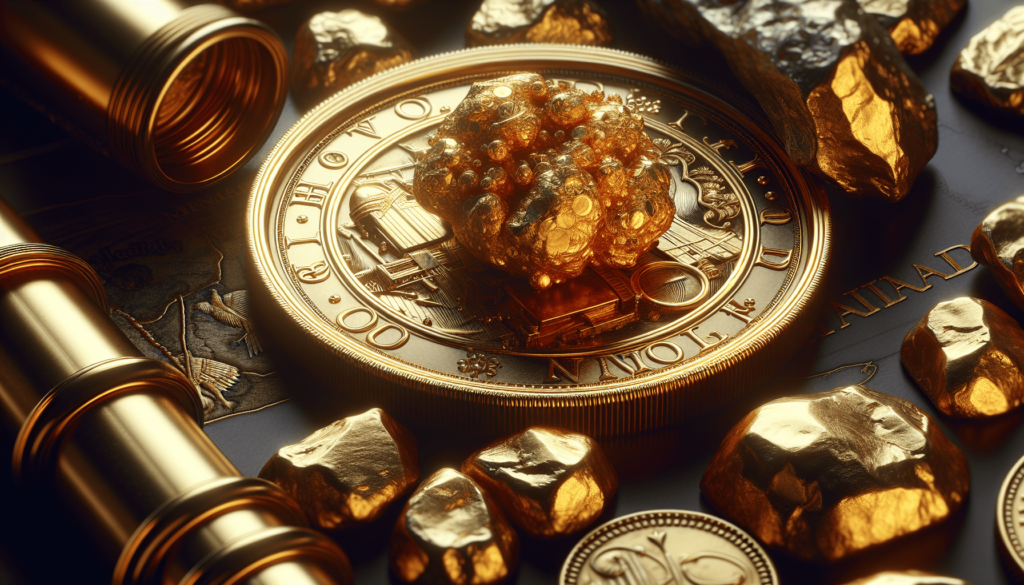The Importance Of Gold In Historical Expeditions
Have you ever wondered why gold played such a significant role in historical expeditions? Gold has been sought after, mined, and traded for centuries. In this article, we will explore the importance of gold in historical expeditions and how it shaped the course of history.

The allure of gold
Gold has always held a special allure for people throughout history. Its scarcity and luster have made it highly sought after and valued by various civilizations. From ancient Egypt to the Spanish conquistadors, gold has been a symbol of wealth, power, and prestige.
It’s no wonder that many historical expeditions were launched to search for new sources of gold. The promise of striking it rich and finding large quantities of gold drove explorers to brave treacherous journeys across oceans and continents. The allure of gold was so strong that it fueled the exploration and colonization of new lands.
Gold as currency
Gold’s value was not just limited to its luster and scarcity; it also served as a form of currency in many civilizations. The use of gold coins as a medium of exchange dates back to ancient times, with civilizations such as the Greeks, Romans, and Chinese minting their own gold coins.
During historical expeditions, explorers would often encounter new civilizations and cultures that also valued gold as a form of currency. The ability to acquire gold from these civilizations not only increased their wealth but also allowed them to establish trade networks and alliances.
Gold as a medium of exchange
Did you know that gold coins were used as a medium of exchange by various civilizations throughout history? The use of gold as a form of currency helped facilitate trade and commerce between different cultures and civilizations.
The search for new sources of gold
Historical expeditions were often launched in search of new sources of gold. The discovery of the New World by Christopher Columbus in 1492, for example, led to the exploitation of gold mines in the Americas by the Spanish conquistadors.
Gold was also a driving force behind the exploration of Africa and Asia. European powers such as Portugal, Spain, and England launched expeditions to these continents in search of new sources of gold and other valuable resources.
Impact on indigenous populations
The search for gold often had devastating consequences for indigenous populations. The exploitation of gold mines by European powers led to the forced labor and enslavement of indigenous peoples. Many civilizations were decimated by diseases brought by the explorers, as well as by warfare over control of gold mines.
Gold as a symbol of power and prestige
Throughout history, gold has been a symbol of power and prestige. Kings, queens, and rulers adorned themselves with gold jewelry and artifacts to display their wealth and influence. The possession of gold was often seen as a sign of prosperity and power.
Historical expeditions that returned with large quantities of gold were celebrated as triumphs and helped solidify the status of the explorers and their sponsors. The wealth acquired from these expeditions often funded further exploration and colonization efforts.
Influence on art and culture
The significance of gold as a symbol of power and prestige also influenced art and culture. Many civilizations created intricate gold artifacts and jewelry to showcase their wealth and craftsmanship. Gold was often used in religious ceremonies and rituals as a symbol of divinity and purity.

The legacy of gold in historical expeditions
The legacy of gold in historical expeditions is far-reaching and continues to impact societies and economies today. The exploration and exploitation of gold mines have shaped the course of history, leading to the rise and fall of empires and civilizations.
Gold continues to be a valuable commodity in the modern world, with many countries holding significant reserves of gold as a form of currency and investment. The allure of gold as a symbol of wealth and power remains strong, making it a prized possession for individuals and nations alike.
Modern-day explorations
Did you know that modern-day explorers continue to search for new sources of gold? Advances in technology have allowed for more efficient and sustainable methods of gold mining, leading to the discovery of new gold deposits around the world.
Gold mining continues to be a lucrative industry, with companies and governments investing in large-scale mining operations to extract gold from the earth. The quest for gold has evolved over the centuries, but its allure and significance remain as strong as ever.
Conclusion
In conclusion, gold has played a crucial role in historical expeditions, shaping the course of history and influencing societies and economies around the world. Its allure as a symbol of wealth and power has driven explorers to seek out new sources of gold and establish trade networks and alliances.
The legacy of gold in historical expeditions continues to be felt today, with gold remaining a valuable commodity and form of currency. As we look back on the importance of gold in historical expeditions, we can appreciate the impact it has had on the world we live in today.

